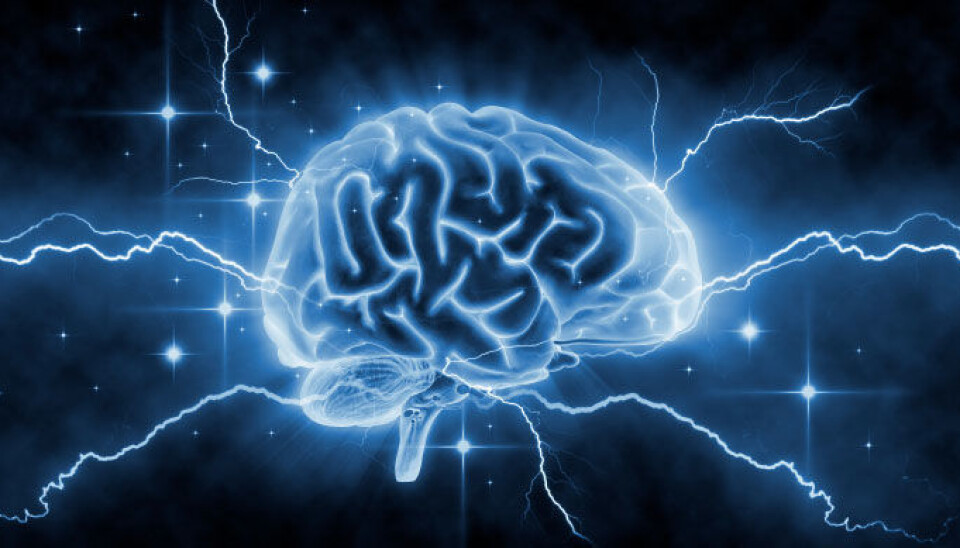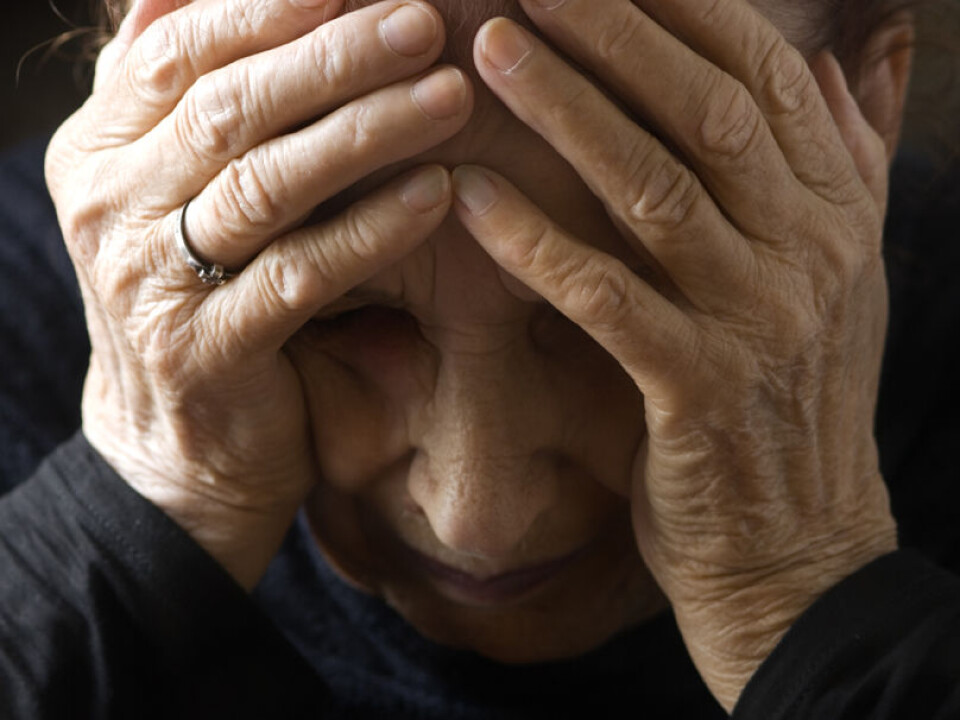
Predicting depression among older women
Scientists have discovered that low levels of a particular molecule in the brain can be used to predict depression in elderly women.
Denne artikkelen er over ti år gammel og kan inneholde utdatert informasjon.
Spinal tap samples from 83 older women, taken in the 1990s, show that individuals with low amounts of the signalling molecule interleukin-6 were more likely to develop depression.
A signalling molecule is a general term for a type of molecule that has a role in transmitting information to cells or among cells.
Interleukin-6 is one such protein molecule that is secreted by white blood cells and has an anti-inflammatory characteristic as its main function in the immune system.
“After the lumbar puncture the women were followed up for 17 years with psychiatric and somatic check-ups, and we saw a clear link between those with low levels of the signalling molecule in the brain and those with depression,” says Dr Silke Kern,a specialist in neurology and psychiatry at Sahlgrenska University Hospital in Gothenburg, Sweden.

“Interleukin-6 was a definite risk marker and it enables us 20 years ahead of time to predict which of these women will develop depression”
Uncertain connection
She stresses that the study's findings do not allow researchers to come to final conclusions about the connection between the signalling molecule and depression among all elderly.
“First of all, this was just one element of a study that only looked at women. So we cannot generalise and say that it holds true for men as well. Secondly, this is an observational study of a small number of people.”
“What we can say for certain is that this will lead to more studies to determine if this is a clinical marker,” says Kern, who adds that there are other follow-up studies underway.

“We are already studying older people in the Gothenburg area aged 70, 85 and 95, and hope within a year or two to get concrete answers about the significance of the value of this signalling molecule in the brain on the development of depression,” Kern says.
Kern's findings are in contrast to previous studies, which have shown that depressed patients often had raised concentrations of interleukin-6 in their blood.
“We don’t know why we are seeing a lower level among the elderly, but we think it could be linked to changes due to advanced age that alter the mechanisms of the illness. Age changes the concentrations of the signalling molecule in the immune system. We don’t know how all this fits together, but we will continue to study it,” explains Kern.
Better medicines
According to figures from the Norwegian Directorate of Health, 100,000 elderly Norwegians were afflicted with depression in 2011. Nineteen percent of Norwegians over 60 were depressed, while that figure was doubled for old people in nursing homes and hospitals.
“As Norway's population ages, we will see more people who are troubled by depression and symptoms such as sleep disorders, low spirits and problems feeling joy and the like. Once we understand depression better, we can develop improved strategies for both therapy and medicines,” Kern says.
In principle, there are four forms of treatment for depression among the elderly, according to the Norwegian Directorate of Health: Social initiatives, psychotherapy (talk therapy), medication or electroshock.
“The use of antidepressants is currently the most common treatment for the elderly, where we use medicines that have an effect on the serotonin and adrenaline system.”
“My hope is that we can find anti-inflammatory medications for depression – medications that have less side effects and that work for patients who are currently hard to treat. Perhaps this research can also lay the foundation for preventative treatment that can nip the depression in the bud,” says Kern.
--------------------
Read the Norwegian version of this article at forskning.no
Translated by: Glenn Ostling



































